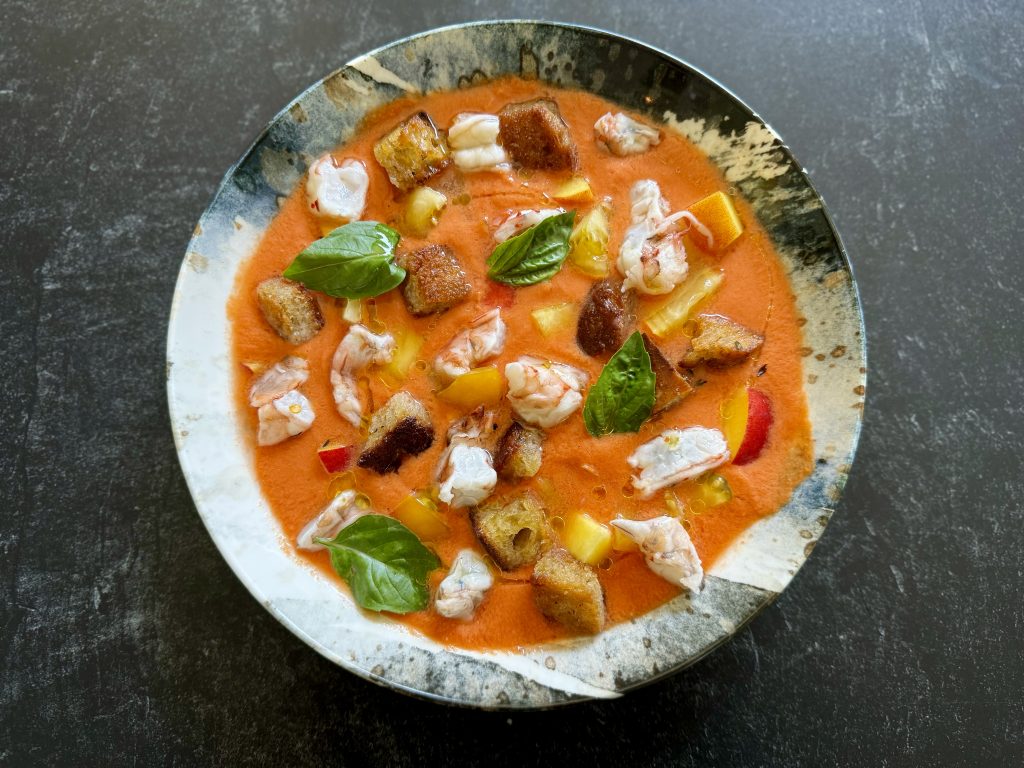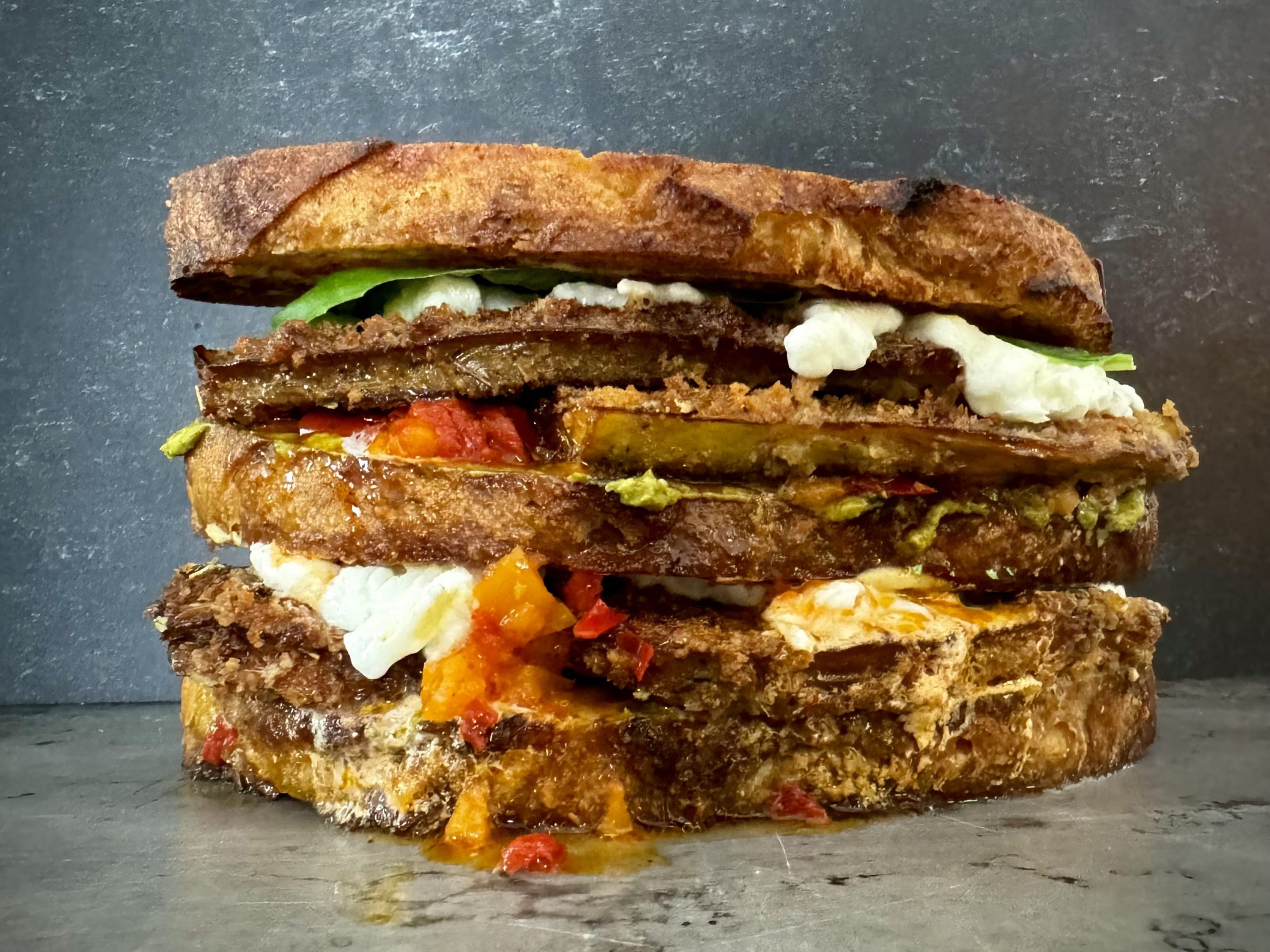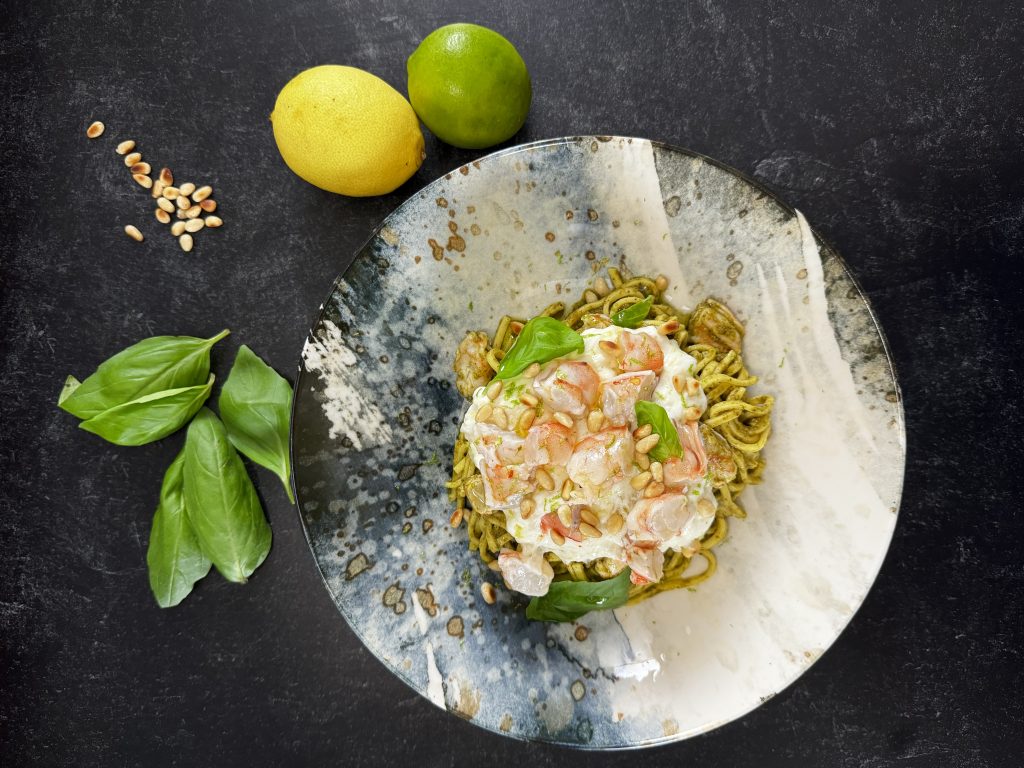Who is Luca Manfè?
Luca Manfè, winner of MasterChef Season 4, made history as the first male and non-American born winner of Gordon Ramsay’s popular Fox show. Following his 2013 win, Luca published his cookbook titled “My Italian Kitchen: Favorite Family Recipes from the Winner of MasterChef Season 4 on FOX”. He also started The Lucky Fig, a gourmet Italian food truck in Houston, which has since closed. In 2018, Luca became a brand ambassador for Donna Italia, specializing in pizza ovens.
Currently, Luca owns a catering service called Dinner with Luca, providing personalized fine dining experiences, and he also teaches online cooking classes. Additionally, he runs Italy with Luca, a unique tour that explores Italy’s hidden gems, family-owned businesses, wineries, and restaurants. In our interview, Luca announces his new cookbook and an upcoming line of knives as he continues to pursue his culinary dreams.
In your own words, how do you describe yourself?
Luca Manfè: I’m an Italian who moved to America over two decades ago. I grew up in northeast Italy and came to the U.S. at 21. I didn’t finish high school in Italy because I was always busy working. When I got to America, I spent a year working at Disney. After that, I moved to New York, where I lived for a decade. That’s where I met my wife, and now we have two kids together.
About ten years back, I appeared on a TV show, which really changed my life in many ways, — mostly for the better, though I’ve had some challenges. Now, I’m an Italian-American, a U.S. citizen, a husband, and a father. I’m trying to find my way in this constantly changing world, especially since my job requires me to keep up with new trends.

How did your career change?
Luca Manfè: Before the show, I was managing restaurants in the US for 15 years. I started as a floor manager and climbed up to the role of general manager. I worked in many places, from fancy Italian eateries to Michelin-starred venues in New York City.
Winning the show was a turning point; it opened many opportunities, yet brought its own set of hurdles. I made a decision to start my own business rather than working for someone else. I launched a food truck, but it wasn’t successful. It was exhausting, with 12 to 14-hour days, rarely being home, and missing family moments. My family is my priority, and I realized I needed a change.
As my children grow, I might consider new projects, maybe even a restaurant, but for now, my focus is being with my family. I had to find new ways to earn a living. In the beginning, it was tough relying on clients for video work and brand ambassador gigs. Some months were fantastic, while others were slow. After 11 years, things are now looking up.
I run a catering service and offer online courses. I’m also working on a new cookbook and have a set of knives made in Italy, near where I grew up. My tour operator business started just last year, and we’ve already scheduled our third tour for next May, which nearly sold out in a week. I concentrate on what’s best for me and my family, not on what others are doing.
I’ve learned to adapt and focus on ventures that align with my personal values and priorities. Family remains my central focus, and I am content with where I am today.
I try to focus on what works for me and my family, not what others are doing.
Is it possible to run a restaurant and maintain a work-life balance?
Luca Manfè: It’s tough. In the hospitality field, many business owners work long hours since profits are slim and taxes are high. It’s alarming how many restaurants don’t survive beyond three to five years. It becomes even harder for chefs and owners who can’t delegate tasks. Ideally, a business should eventually operate independently, but few in the restaurant world manage this.
Since COVID, it’s been very hard to find willing workers. Almost every restaurant has “help wanted” signs now. During the pandemic, many people were at home and had time to think, realizing they hated their jobs. Finding dedicated staff has become a major challenge.

Why did you choose to start your catering service instead of working as a chef in a Michelin-starred restaurant?
Luca Manfè: There’s a big misconception about reality shows like MasterChef. Contestants must be amateur cooks with no formal culinary training.
I didn’t want to work for another person after the show. Part of it was driven by ego. I was fed up with managing restaurants and wanted a fresh start. In hindsight, it was a poor choice. I was skilled at that job and could have looked into other opportunities while still earning from what I excelled at. Now, after 11 years in the kitchen, I might land a chef job, but it’s because of the skills I’ve learned along the way, not because of the show.
Winning grants you the MasterChef title, but it doesn’t turn you into a real chef. If I had gone to a restaurant after winning, I’d be a prep or salad guy due to my lack of experience.
How important is formal education versus hands-on experience in the culinary field?
Luca Manfè: I get tons of messages from people telling me they dream of going to culinary school and becoming a chef. But in the US, culinary education is outrageously pricey. Meanwhile, in Italy (and probably the rest of Europe), culinary training starts in high school. This hands-on learning approach from day one makes cooking more practical. Unlike medicine or engineering, where theory is key, cooking is something you master by doing.
Here, you finish high school, then dive into college, spending around $40,000 a year just to learn the basics like filleting a fish or deboning a chicken. Honestly, that seems crazy to me. It could be more straightforward and accessible, considering how essential and practical culinary skills are.
What advice would you give to the young people that want to get into the industry?
Luca Manfè: Many people think that being a chef means becoming a star like Gordon Ramsay or Jamie Oliver. They see the TV shows, book deals, and sponsors and think it’s normal. But those chefs are rare, one in a million. Teens thinking about this career need to understand that the job involves long hours, including nights, weekends, and holidays. They might have super long shifts while their friends are out having fun. It’s a tough job that affects your personal life. If you start a family, this schedule can put a strain on relationships.
So, for young folks considering culinary school, my advice is to get a job in a restaurant first. Try it out over the summer. Begin with simple tasks like peeling veggies or working the salad station. See if the reality matches the TV fantasy.
The job is not as glamorous as it looks. Even if you’re passionate, it’s not just about cooking—there’s a lot more to it, and it can significantly impact your personal life.

So, you’re saying some people can lose their passion for cooking along the way?
Luca Manfè: That’s an interesting question. When you’re really into something, you might still lose that passion because life happens. Working in kitchens can be unhealthy if you let it. Late nights, then going out with coworkers for a drink or two—it can become a habit. Not everyone does this, but I’ve seen it plenty in my years in New York.
Some folks stick with jobs they dislike just to add experience from a Michelin-star restaurant to their resume. Others try something new and find that the corporate world offers a more attractive lifestyle. You can still be a chef but not work in a restaurant. There are positions at large cafeterias, hospitals, schools, or even companies like Google. These jobs often provide better pay, high benefits, and a more balanced work-life situation. I’ve met chefs who left Michelin-starred kitchens for these corporate roles and found them much more fulfilling than they expected. The transition can lead to a more satisfying and healthier career path.
How can people progress in their culinary careers?
Luca Manfè: The number one mission should be to get better every day. Don’t stay in the same restaurant forever. Learn from various chefs, work in different types of restaurants, and find a place that appreciates you and wants to teach new things. Always learn new techniques and cuisines. I once worked at a Japanese spot, and it was incredible. I didn’t know most ingredients on the menu, but it was an amazing learning opportunity. Travel whenever possible, especially in Europe—work in France, Spain, Italy, Great Britain.
But most importantly, don’t let anyone mistreat you. The industry has made some progress, and it’s no longer acceptable for chefs or managers to yell and treat you badly. The work environment should be supportive and respectful.
How do you handle hiring your team at Dinner with Luca?
Luca Manfè: I depend on people I already know and trust. My gatherings are intimate; the largest one here in Pennsylvania had 35 attendees. Larger events have been requested, but I keep it simple.
I structure my business to remain small and relaxed. We take our time preparing and cooking, unlike the rush of a restaurant. My dishes are not complicated; the menu changes with the seasons. My aim is always to make tasty food, without overcomplicating things.
When new people join my team, they must be eager to learn. Currently, I have two team members who have stuck around for over two years. Another helper moved out of state recently after three and a half years with us. A new person has been with us for six months.
What type of people thrive in your kitchen?
Luca Manfè: Home cooks and moms who enjoy preparing meals are usually the best. They’re quick, efficient, neat, and careful in their work. My top workers have shown these traits, like a 50-year-old Mexican woman who juggled managing a house, a full-time job, and five children, all with incredible efficiency.
How to become a chef like Luca Manfè
Luca Manfè’s career underscores how crucial being flexible and constantly learning is for lasting success in cooking. He emphasizes getting hands-on experience and looking into different parts of the field, aside from TV fame. Luca’s story shows the importance of balancing love for one’s work with practical challenges, and hints that true satisfaction might come from branching out in one’s career.




